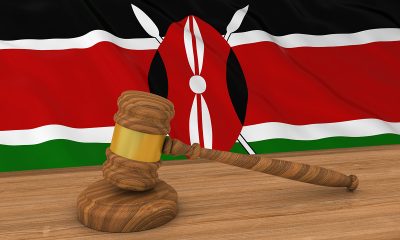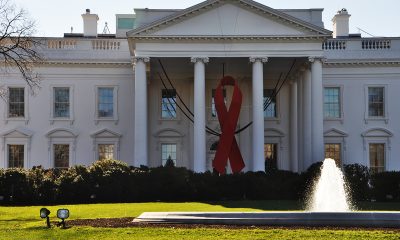Africa
Prominent Kenyan activist brutally murdered, body stuffed in metal box
Freelance photojournalist arrested in connection with Edwin Chiloba’s death
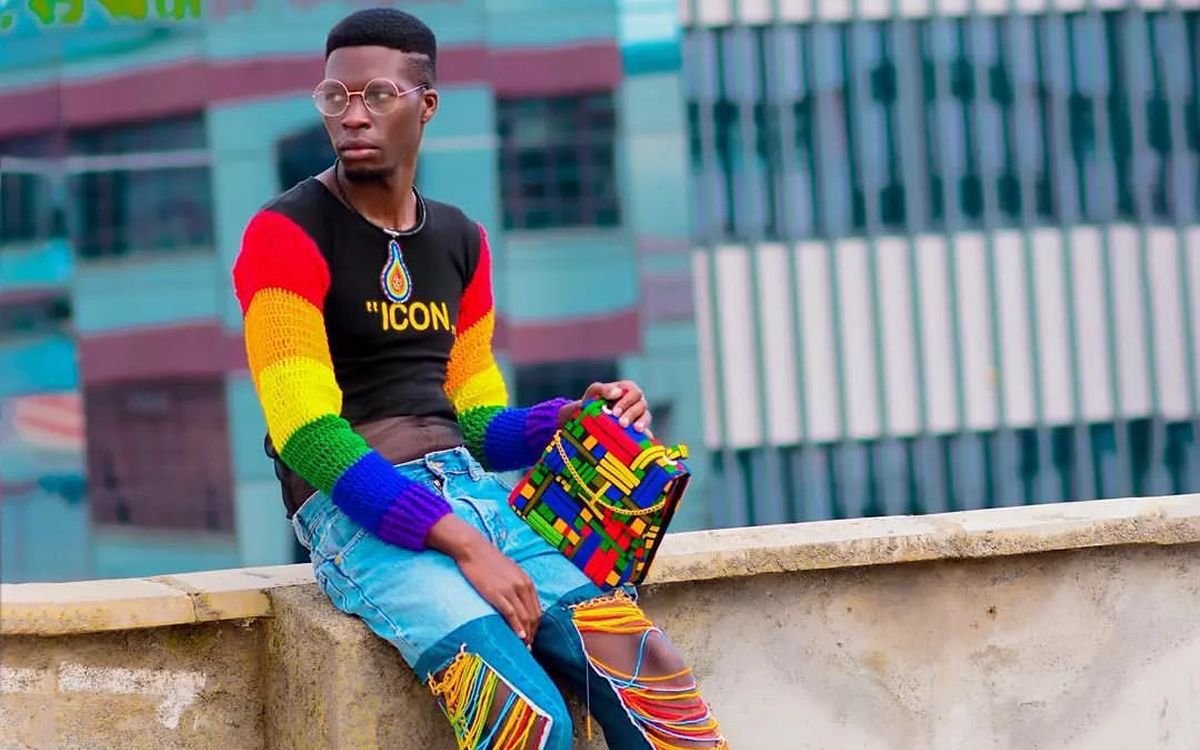
Kenyan police have arrested a freelance photojournalist believed to have been involved in the brutal murder of Edwin Chiloba, a prominent LGBTQ and intersex activist and fashion designer.
Zacchaeus Ngeno, a regional deputy police commander in Uasin Gishu County in western Kenya where Chiloba’s murder took place, confirmed to the press that investigators are pursuing two other suspects who are on the run.
The unnamed freelance photojournalist who has not been publicly named because the investigation continues was last seen with Chiloba on New Year’s Eve at a popular nightclub in the region where the victim lived.
The suspect in custody is expected to be arraigned early next week.
Chiloba arrived at Tamasha Place nightclub at around 10 p.m. on Dec. 31 and left after 1 a.m. after watching the New Year’s fireworks with friends, according to Melvin Faith, the deceased’s sister who works there and happily ushered in 2023 together.
Faith noted her family was later worried about Chiloba’s indefinite unavailability on his cell phone and in his rental house where he lived alone until the shocking discovery of his body on Wednesday inside a metal box that had been dumped on a rural street. A commuter on a motorbike first discovered it.
Chibola, in addition to being an LGBTQ and intersex activist and a model, and was finishing his undergraduate studies at a local university. Chibola was widely covered in local newspaper for his outstanding fashion designs as one of the country’s young emerging entrepreneurs.
The arrest and heightened pursuit of the two suspects comes amid pressure from the LGBTQ and intersex community, and local and international rights groups on Kenyan authorities to swiftly investigate and prosecute those who killed Chiloba.
Kenya Human Rights Commission Executive Director Davis Malombe in a press statement described the murder a “disgusting act of homophobic violence.” He added it violates the Constitution; which grants the right to life, dignity, and freedom of expression for all regardless of gender, sex and any other status.
“The killing is reprehensible and unjust. We demand the Directorate of Criminal Investigations to take swift and due action in investigating this murder, booking and prosecuting the perpetrators,” Malombe said.
He raised concerns over the recent increase in cases of threats, assault and murders of LGBTQ and intersex people in Kenya with little effort from the police to address them.
“An attack on one of us is an attack on all of us. LGBTQ rights are human rights. We demand justice for Edwin,” he said. Amnesty International Secretary General Agnes Callamard via Twitter condemned Chibola’s murder as “heart-breaking” while demanding a “full and independent” probe by the authorities.
Heart-breaking. My thoughts go out to Edwin Chiloba’s family, friends and the #Kenya LGBTQ community. Full, independent investigatory is required, leaving no stone unturned.. https://t.co/g2SVQm3wBW
— Agnes Callamard (@AgnesCallamard) January 6, 2023
Ned Price, the openly gay spokesperson for the U.S. State Department, echoed Callamard.
“Our sincere condolences to the family and friends of prominent Kenyan LGBTQI+ community member Edwin Chiloba,” tweeted Price. “We call for full accountability for his death.”
Our sincere condolences to the family and friends of prominent Kenyan LGBTQI+ community member Edwin Chiloba. We call for full accountability for his death.
— Ned Price (@StateDeptSpox) January 6, 2023
Chiloba joins a long list of LGBTQ and intersex people in Kenya who have been murdered.
Sheila Lumumba, a nonbinary lesbian, was raped and murdered last April in Nyeri County in northeast Kenya. Two suspects have been arrested and charged, and the case remains in court.
Violence against gays and lesbians remains commonplace in Kenya. The country’s penal code criminalizes consensual same-sex sexual acts and those found guilty can face up to 14-years in jail. Pressure, however, has been mounting from inside Kenya to protect the LGBTQ and intersex community’s rights.
Willy Mutunga, the country’s chief justice emeritus who served on the Kenyan Supreme Court from 2011-2016, is the latest former senior government official to demand the State grant full and equal rights to LGBTQ and intersex Kenyans. Mutunga has questioned how any parent can disown their child and even deny them basic needs because they belong to the LGBTQ and intersex community.
Despite the pressure, President William Ruto’s administration remains noncommittal to granting LGBTQ and intersex people equal rights just like his predecessor Uhuru Kenyatta.
Ruto during an interview with CNN last September said gay rights were not a priority for Kenyans and dismissed calls for his government to give the LGBTQ and intersex community equal rights through changes to the law. Ruto noted “we respect everybody and what they believe in” while demanding that Western countries respect Kenyans’ beliefs.
Egypt
Iran, Egypt object to playing in Seattle World Cup ‘Pride Match’
Game to take place on June 26

Iran and Egypt have objected to playing in a “Pride Match” that will take place in Seattle during the 2026 World Cup.
The Egyptian Football Association on Tuesday said it told FIFA Secretary General Mattias Grafström in a letter that “it categorically rejects holding any activities related to supporting (homosexuality) during the match between the Egyptian national team and Iran, scheduled to be held in Seattle, USA, on June 26, 2026, in the third round of the group stage of the 2026 World Cup.” Football Federation Islamic Republic of Iran President Mehdi Taj told ISNA, a semi-official Iranian news agency that both his country and Egypt “protested this issue.”
The 2026 World Cup will take place in the U.S., Canada, and Mexico. The draw took place at the Kennedy Center on Dec. 5.
Iran is among the handful of countries in which consensual same-sex sexual relations remain punishable by death.
The State Department’s 2023 human rights report notes that while Egyptian law “did not explicitly criminalize consensual same-sex sexual activity, authorities regularly arrested and prosecuted LGBTQI+ persons on charges including ‘debauchery,’ prostitution, and ‘violating family values.’” Egyptian authorities “also reportedly prosecuted LGBTQI+ individuals for ‘misuse of social media.’”
“This resulted in de facto criminalization of same-sex conduct and identity,” notes the report.
The 2024 human rights report the State Department released earlier this year did not include LGBTQ-specific references.
Soccer has ‘unique power to unite people across borders, cultures, and beliefs’
The June 26 match between Iran and Egypt coincides with Seattle Pride. The Washington Post reported the Seattle FIFA World Cup 2026 Local Organizing Committee decided to hold the “Pride Match” before last week’s draw.
“As the Local Organizing Committee, SeattleFWC26’s role is to prepare our city to host the matches and manage the city experience outside of Seattle Stadium,” said SeattleFWC26 Vice President of Communications Hana Tadesse in a statement the committee sent to the Washington Blade on Wednesday. “SeattleFWC26 is moving forward as planned with our community programming outside the stadium during Pride weekend and throughout the tournament, partnering with LGBTQ+ leaders, artists, and business owners to elevate existing Pride celebrations across Washington.”
“Football has a unique power to unite people across borders, cultures, and beliefs,” added Tadeese. “The Pacific Northwest is home to one of the nation’s largest Iranian-American communities, a thriving Egyptian diaspora, and rich communities representing all nations we’re hosting in Seattle. We’re committed to ensuring all residents and visitors experience the warmth, respect, and dignity that defines our region.”
The 2034 World Cup will take place in Saudi Arabia.
Consensual same-sex sexual relations remain punishable by death in the country. The 2022 World Cup took place in neighboring Qatar, despite concerns over the country’s anti-LGBTQ rights record.
Eswatini
PEPFAR delivers first doses of groundbreaking HIV prevention drug to two African countries
Lenacapavir now available in Eswatini and Zambia.
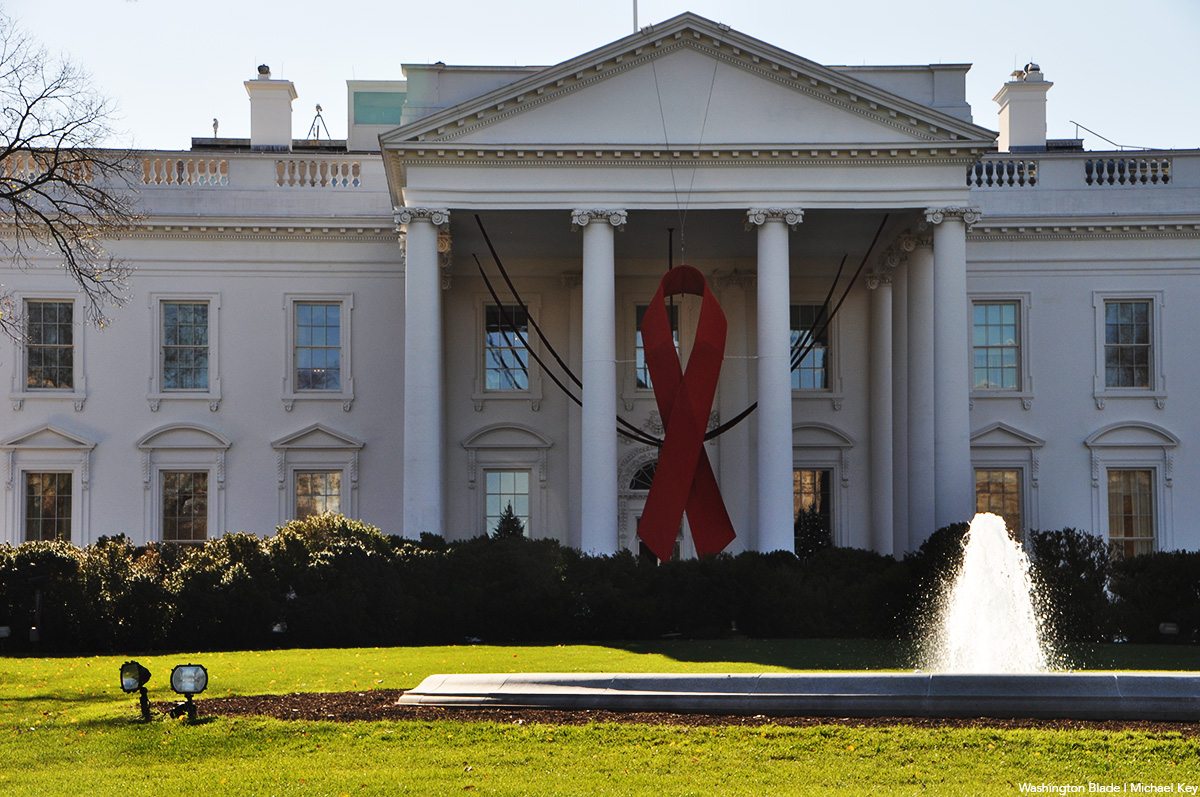
The State Department on Tuesday announced PEPFAR has delivered the first doses of a groundbreaking HIV prevention drug to two African countries.
The lenacapavir doses arrived in Eswatini and Zambia.
The State Department in September unveiled an initiative with Gilead Sciences to bring lenacapavir “to market in high-burden HIV countries.”
Lenacapavir users inject the drug twice a year.
The State Department in its September announcement noted everyone who participated in Gilead’s clinical trials remained HIV negative. It also said lenacapavir “has the potential to be particularly helpful for pregnant and breastfeeding mothers, as it safely protects them during and after pregnancy to prevent mother-to-child transmission.”
“In our new America First Global Health Strategy, the Department of State is establishing a first-of-its-kind innovation fund to support American-led research, market-shaping, and other dynamic advancements in global health,” said PEPFAR on Tuesday in a press release.
“The arrivals of the first doses of lenacapavir in Eswatini and Zambia mark an important milestone in HIV prevention and reflect our commitment to supporting communities with the greatest need,” added Gilead CEO Daniel O’Day. “For the first time, a new HIV medicine is reaching communities in sub-Saharan Africa in the same year as its U.S. approval.”
The September announcement came against the backdrop of widespread criticism over the Trump-Vance administration’s reported plans to not fully fund PEPFAR and to cut domestic HIV/AIDS funding. The Washington Blade has previously reported PEPFAR-funded programs in Kenya and other African countries have been forced to curtail services or even close because of U.S. funding cuts.
Botswana
The first courageous annual Palapye Pride in Botswana
Celebration was a beginning rooted in courage, community, and love.
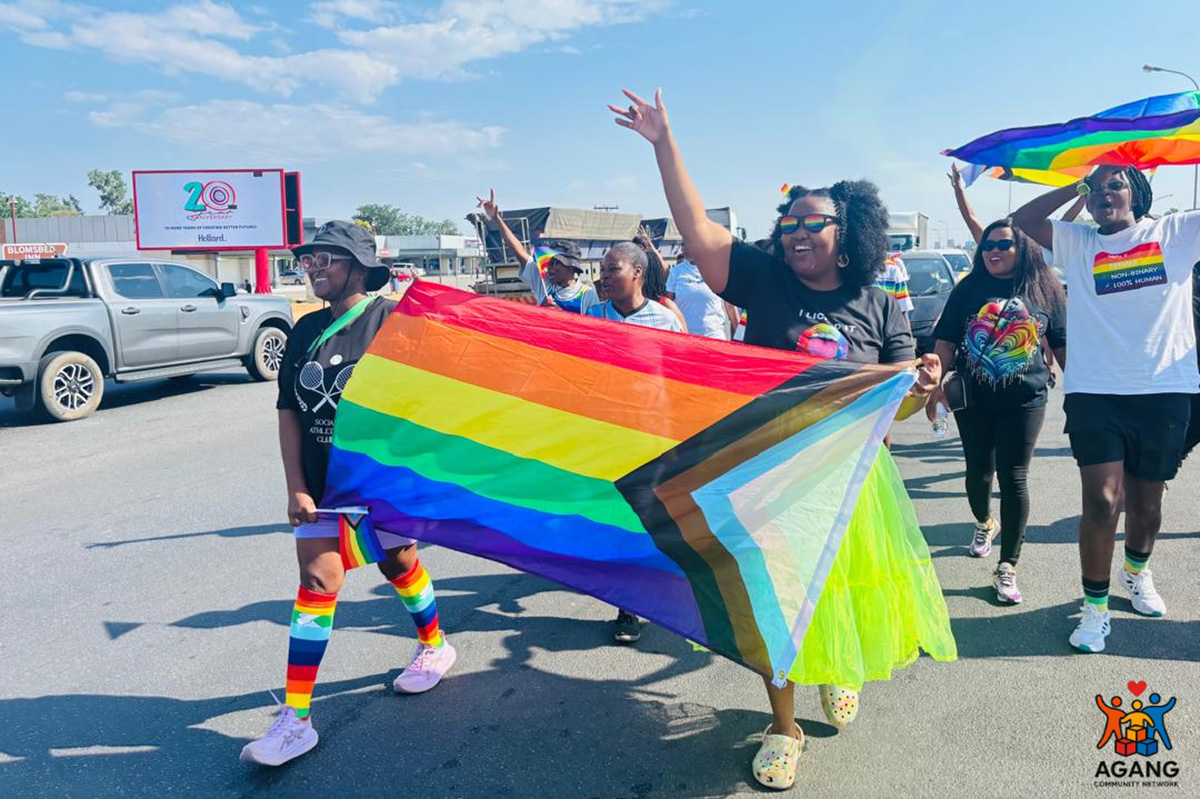
“When the sun rose on 1 Nov., 2025, Pride morning in Palapye, the open space where the march was scheduled to begin was empty. I stood there trying to look calm, but inside, my chest felt tight. I was worried that no one would come. It was the first-ever Pride in Palapye, a semi-urban village where cultural norms, religious beliefs, and tradition are deeply woven into everyday life.
I kept asking myself if we were being naive. Maybe people weren’t ready. Perhaps fear was going to win. For the first 30 minutes, it was me, a couple of religious leaders and a handful of parents. That was it. The silence was loud, and every second felt like it stretched into hours. I expected to see the queer community showing up in numbers, draped in color and excitement. Instead, only the wind was moving.
But slowly, gently, just like courage often arrives, people started to show up with a rainbow flag appearing from behind a tree and a hesitant wave from someone standing at a distance.
That’s when I understood that people weren’t late, just that they were afraid. And their fear made sense. Showing up openly in a small community like Palapye is a radical act. It disrupts silence. It challenges norms. It forces visibility. Visibility is powerful, but it is never easy. We marched with courage, pulling from the deepest parts of ourselves. We marched with laughter that cracked through the tension. We marched not because it was easy, but because it was necessary,” narrates activist Seipone Boitshwarelo from AGANG Community Network, which focuses on families and friends of LGBTIQ+ people in Botswana. She is also a BW PRIDE Awards nominee for the Healing and Justice Award, a category which acknowledges contributions to wellness, mental health, and healing for the LGBTIQ+ community across Botswana.
Queer Pride is Botswana Pride!
Pride is both a celebration and a political statement. It came about as a response to systemic oppression, particularly the criminalization and marginalization of LGBTIQ+ people globally, including in Botswana at some point. It is part of the recognition, equality, and assertion of human rights. It also reminds us that liberation and equality are not automatically universal, and continued activism is necessary. A reminder of the famous saying by Fannie Lou Hamer, “Nobody is free until everybody’s free.”
The 2023 Constitutional Review process made one thing evident, which is that Botswana still struggles to acknowledge the existence of LGBTIQ+ people as full citizens. Instead of creating a democratic space for every voice, the process sidelined and erased an entire community. In Bradley Fortuin’s analysis of the Constitutional review and its final report, he highlighted how this erasure directly contradicts past court decisions that explicitly affirmed the right of LGBTIQ+ people to participate fully and openly in civic life. When the state chooses to ignore court orders and ignore communities, it becomes clear that visibility must be reclaimed through alternative means. This is why AGANG Community Network embarked on Palapye Pride. It is a radical insistence on belonging, rooted in community and strengthened through intersectionality with families, friends, and allies who refuse to let our stories be erased.
Motho ke motho ka batho!
One of the most strategic decisions made by the AGANG Community Network was to engage parents, religious leaders, and local community members, recognizing their value in inclusion and support. Thus, their presence in the march was not symbolic, but it was intentional.
Funding for human rights and LGBTIQ+ advocacy has been negatively impacted since January 2025, and current funding is highly competitive, uneven and scarce, especially for grassroots organizations in Botswana. The Palapye Pride event was not funded, but community members still showed up and donated water, a sound system, and someone even printed materials. This event happened because individuals believed in its value and essence. It was a reminder that activism is not always measured in budgets but in willingness and that “motho ke motho ka batho!” (“A person is a person because of other people!”).
Freedom of association for all
In March 2016, in the the Attorney General of Botswana v. Rammoge and 19 Others case, also known as the LEGABIBO registration case, the Botswana Court of Appeal stated that “members of the gay, lesbian, and transgender community, although no doubt a small minority, and unacceptable to some on religious or other grounds, form part of the rich diversity of any nation and are fully entitled in Botswana, as in any other progressive state, to the constitutional protection of their dignity.” Freedom of association, assembly, and expression is a foundation for civic and democratic participation, as it allows all citizens to organize around shared interests, raise their collective voice, and influence societal and cultural change, as well as legislative reform.
The Botswana courts, shortly after in 2021, declared that criminalizing same-sex sexual relations is unconstitutional because they violated rights to privacy, liberty, dignity, equality, and nondiscrimination. Despite these legal wins, social stigma, cultural, and religious opposition continue to affect the daily lived experience of LGBTIQ+ people in Botswana.
The continuation of a declaration
AGANG Community Network is committed to continuing this work and creating safe and supportive spaces for LGBTIQ+ people, their families, friend, and allies. Pride is not just a day of fun. It is a movement, a declaration of queer existence and recognition of allyship. It is healing and reconciliation while amplifying queer joy.
Seipone Boitshwarelo is a feminist, activist, social justice healer, and founder of AGANG Community Network. Bradley Fortuin is a social justice activist and a consultant at the Southern Africa Litigation Center.
-

 Florida5 days ago
Florida5 days agoDNC slams White House for slashing Fla. AIDS funding
-

 Virginia4 days ago
Virginia4 days agoVa. Senate approves referendum to repeal marriage amendment
-

 Theater4 days ago
Theater4 days agoVoiceless ‘Antony & Cleopatra’ a spectacle of operatic proportions
-

 Real Estate3 days ago
Real Estate3 days agoTop buyer-friendly markets for the LGBTQ community



